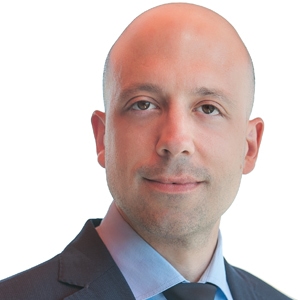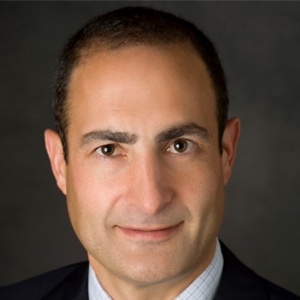The best boutiques in investment banking gain an edge by offering exceptional knowledge and service in specific areas.
Boutique investment banks, defined as firms that provide specialized services for a specific market segment, are increasingly winning corporate business from bigger firms. Such specialists captured 44% of merger and acquisition (M&A) fees in Europe between January and August 2016, according to Thomson Reuters, up from 30.5% 10 years ago.

Aside from specialization, the appeal of boutiques arises from their independence and the access clients have to top executives. “The firm provides innovative, unconflicted strategic advice,” says Jeff Raich, co-president of Moelis & Company, which Global Finance named 2017 Best Boutique Investment Bank for North America. “Independent banks like Moelis & Company offer clients greater engagement with senior bankers.” Moelis, founded in 2007, has offices in North and South America, Europe, the Middle East, Asia and Australia, Raich says.
Ducera Partners, based in New York, was named Global Best Boutique Investment Bank for the past year. Other winners include Robey Warshaw for Western Europe, Tyndall Group for Latin America, BMB Investment Bank for the Middle East and Java Capital for Africa.
Bojan Kunovar, a founding partner of KF Finance, the 2017 best boutique for Central and Eastern Europe, also sees continued strong demand for his firm’s services. Kunovar and co-founder Matja Filipi started KF Finance in 2009, in the depths of the financial crisis.
While Dealogic reports that the number of deals across the globe that year dropped below 37,000, down 15% from 2007, the timing proved to be prescient. Many companies had to restructure and thus needed advisory services. Moreover, KF Finance offered an appealing alternative to the firms already in the market. Previously, “you had either big institutions or one-man bands,” Kunovar says. His firm offers the expertise normally found within large firms, yet can provide more-personalized and more-rapid service.
Since its founding, KF has worked on deals in Slovenia, Croatia, Serbia, Romania, Bulgaria, and Bosnia and Herzegovina. In 2016, the firm entered the debt-collection market through its acquisition of Pro Kolekt, and the NPL (nonperforming loan) servicing market through a joint venture. The employee roster at KF Group now tops 100 professionals, Kunovar says.
How do successful smaller investment banks compete against the big guys? To start, they have a deep knowledge of their clients, understand their needs and deliver for them, says Christopher Tan, managing director and founder of Ivory Capital Asia, Global Finance’s pick for Best Boutique Investment Bank for Asia-Pacific. “Being able to understand what our capabilities are, and making sure we get into situations where we can execute, is key,” he says. Ivory Capital works in China, Indonesia, the Philippines and Singapore and focuses on deals of institutional quality.
An entrepreneurial spirit and sense of urgency are also key, according to KF’s Kunovar: “We have to be proactive and look for deals, versus falling asleep and letting the business come to us.”
He and his colleagues do a fair bit of education about their services. Potential clients’ knowledge of the role of investment banking isn’t as developed in CEE as in some other parts of the globe. Many potential clients who need investment banking advice often turn initially to a large accounting firm or bank.
KF’s knowledge of the local markets in the region is a plus, Kunovar says. For instance, some parts of the economies of Croatia and Serbia are controlled by large holding companies, and political connections remain important, although they are becoming less so. “It’s important to understand where you can expect obstacles,” Kunovar says.
And even though boutique firms, by definition, lack the heft of the biggest firms, many focus on a region rather than on one country. Ivory Capital works across much of Asia, and KF handles deals across Central and Eastern Europe. “The markets are small and fragmented but share a history, and the languages are similar,” Kunovar says.
Moelis also works across borders. “Within the first few years of the firm’s existence, we also made a conscious decision to establish a global presence,” Raich says. Recently, the firm has seen strong activity in China, India, Brazil and the Middle East, he adds.
Investment banking experience and expertise are also key. Many of those at the helm of boutique firms come from larger organizations. Kunovar was with the largest Slovenian bank before co-founding KF; his partner, Filipi, had been with KPMG.
Tan, who founded Ivory Capital in 2002, previously headed Lehman Brothers’ Singapore and Malaysia investment banking group. He had also worked in the investment banking groups of Deutsche Morgan Grenfell Southeast Asia and Baring Brothers Hong Kong.

Raich had been joint global head of mergers and acquisitions at UBS. Before that, he had been a managing director and head of West Coast M&A at Donaldson, Lufkin & Jenrette.
While many boutique investment banks are finding a receptive market, their business can vary from one country to another. Slowing growth in Singapore’s economy, for instance, means “consolidation is the theme,” Tan says. Companies are using it both to achieve cost savings and to find new growth in areas outside Singapore.
Indonesia contains a mix of restructuring and growth, Tan says. Many companies have cash and aren’t in financial difficulty, but need to pare expenses. That also is leading to consolidation opportunities. “There’s growth, but high, redundant costs,” he adds.
Many growth opportunities stem from Indonesia’s still-developing economy. Companies are building new plants to produce products currently imported or to manufacture products, mostly industrial, currently found in the country but at a lower quality than elsewhere, Tan says. As companies “readjust their footing,” strategic investors and multinationals can take advantage of opportunities to partner with local firms to bring new technology, products and capabilities, he adds.
One country in the region whose economy remains strong is the Philippines. “It remains the bright spot across Southeast Asia,” Tan says. Indeed, the Asian Development Bank forecasts GDP growth of 6.2% for 2017. Ivory Capital is focusing on deals in healthcare, education and local tourism, among other areas.
The opportunities in Central and Eastern Europe also vary by country. Before the financial crisis, many companies in Slovenia were acquiring companies in Croatia and Serbia, Kunovar says. Now, companies in Croatia and Serbia are healthier and are acquiring companies that used to be “crown jewels in Slovenia,” he says.
In general, however, KF’s market has grown more active over the past two to three years, Kunovar says. Many companies have been selling noncore assets, often prompted by their banks.
In addition, many projects that previously would have received funding from banks now are backed by international real estate funds. “They’re new to this market,” Kunovar says, adding that foreign investors are more comfortable betting on the region than was the case even eight or ten years ago. He estimates that at least 50% of KF’s business this year will be with foreign investors, up from zero when the firm started. “We had to show credibility first,” he says.
While the future for boutique investment firms appears bright, one part of Kunovar’s reasoning in opening his own shop has yet to materialize. “Our initial idea was, ‘Let’s make it on our own, establish a company and maybe have a little more free time.’”
He’s still working on finding that free time, Kunovar says. “Maybe someday.”
|
Best Boutique Investment Banks 2017 | |
|
Global Winner – Ducera Partners | |
|
North America |
Moelis & Company |
|
Western Europe |
Robey Warshaw |
|
CEE |
KF Finance |
|
Asia-Pacific |
Ivory Capital |
|
Latin America |
Tyndall Group |
|
Middle East |
BMB Investment Bank |
|
Africa |
Java Capital |



